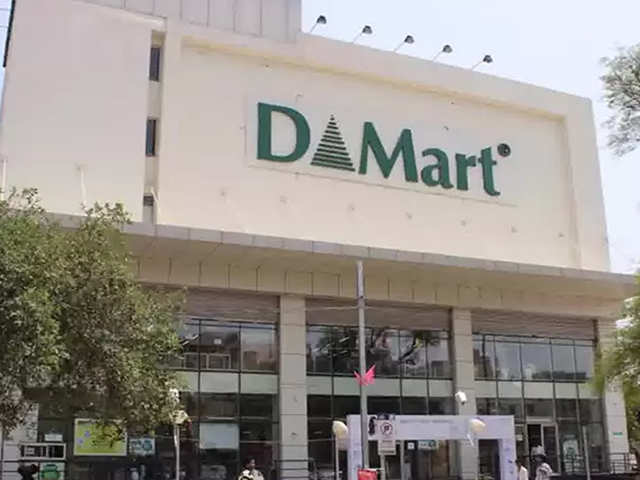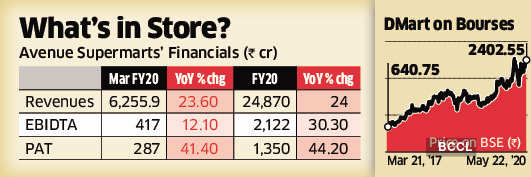DMart’s secular rally may pause for a while
The stock's at all-time high and at price to earnings multiple of 120 times FY20 score.
by Jwalit Vyas
Mumbai: Running India’s biggest, standalone supermarket business through the pandemic has its share of hazards. Costs are high because screening, sanitation and hygiene maintenance costs at stores have surged, and so have the incentives for frontline staff braving the risk of infection.
That’s the reason DMart isn’t as vocal about the FY21 outlook as it ought to be, especially after the 23% increase in revenue in the March quarter.
Given the background, the secular rally of Avenue Supermarts — the operator of the DMart chain — may pause for a while. While the long-term strategy and lean cost structure and a strong balance sheet will give the company an edge, the short-term negative outlook and high multiples could keep the stock under pressure.
The stock is still trading at an all-time high and at price to earnings multiple of 120 times FY20 earnings.

Although sales for the previous quarter grew 23% year on year, the climb was mainly due to strong growth in the first two months. In March, the sales growth was only 11%. In April, revenue fell 45%, with the full effect of the lockdown kicking in. But with some relaxations and the company pushing sales through new channels such as home deliveries, sales in the first two weeks of May rose 17% over the same period in April.
Sales, Ebidta and net profit for the quarter stood at 6,194 crore, up 23%, 418 crore, up 12.3% and 287 crore, up 41.1%. Like for like sales growth (for 24 months), a parameter the company uses to compare actual growth in demand, declined to 10.9% for FY20 from 17.8% in the previous year. This means a significant part of sales was driven by stores opened in the recent years. It opened 18 stores in the quarter and 38 stores in the year, higher than expected.
If the lockdown extends for another 40-50 days, some of the inventory writeoff will have to be taken given limited shelf lives. At the end of FY20, the inventory was 1,909 crore. Sales of non-essentials such as merchandise and apparels have fallen significantly. Assuming the situation will stabilise in the second half of FY21, analysts are expecting near 10% sales growth for the year and a 15% net profit growth.
While the near-term trend remains unfavourable, long-term scenario is becoming more favourable for DMart. The current situation will lead to huge consolidation in the industry, correction in property prices and rentals. With nearly 3,500 crore worth of net cash, the company is in a great position to take advantage of lower overhead costs.